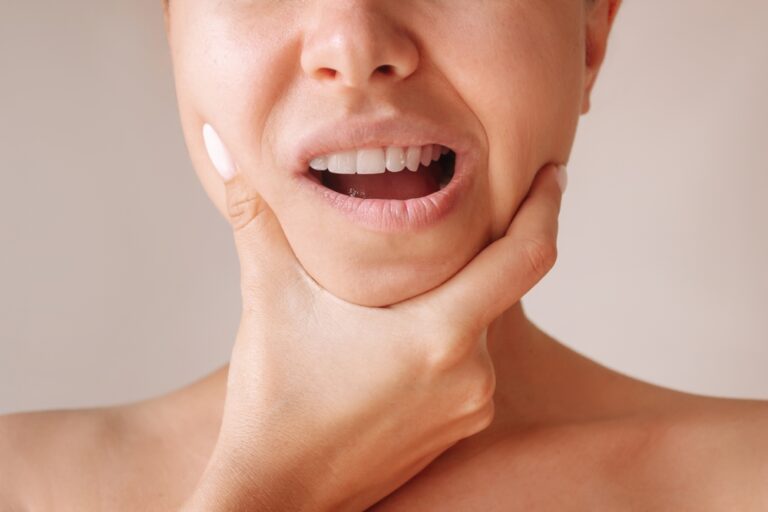Do your gums bleed when you brush your teeth? If so, you may be wondering if this is normal or if it’s a sign of a more serious problem. While it’s not uncommon for gums to bleed occasionally, frequent bleeding can be a sign of gum disease or other oral health issues. In this article, we’ll explore the causes of bleeding gums and what you can do to prevent and treat it.
Bleeding gums can be caused by a variety of factors, including poor oral hygiene, gum disease, hormonal changes, and certain medications. If you’re experiencing bleeding gums, it’s important to determine the underlying cause so that you can take the appropriate steps to address it. Ignoring the problem can lead to more serious oral health issues down the line, so it’s best to take action sooner rather than later.
Fortunately, there are several things you can do to prevent and treat bleeding gums. These include improving your oral hygiene habits, using the right dental products, and seeing your dentist regularly for checkups and cleanings. By taking these steps, you can help keep your gums healthy and prevent bleeding. So if you’re dealing with bleeding gums, don’t panic – read on to learn more about what you can do to address the issue.
Understanding Gum Health

Your gums are an important part of your oral health. They hold your teeth in place and protect the bones that support them. Healthy gums are firm, pink, and do not bleed when you brush or floss.
Gum disease, also known as periodontal disease, is a common condition that affects the gums and bones around your teeth. It is caused by bacteria in plaque, a sticky film that forms on your teeth. If left untreated, gum disease can lead to tooth loss and other serious health problems.
There are two types of gum disease: gingivitis and periodontitis. Gingivitis is the early stage of gum disease and is characterized by red, swollen, and bleeding gums. It is reversible with proper oral hygiene and professional dental care. Periodontitis is a more advanced form of gum disease that can lead to tooth loss and damage to the bone that supports your teeth.
Maintaining good oral hygiene is essential for preventing gum disease. This includes brushing your teeth twice a day with a fluoride toothpaste, flossing daily, and using an antiseptic mouthwash. You should also visit your dentist regularly for check-ups and professional cleanings.
Other factors that can affect your gum health include smoking, hormonal changes, certain medications, and genetic predisposition. If you notice any changes in your gum health, such as bleeding, swelling, or redness, it is important to see your dentist as soon as possible.
In summary, understanding your gum health is crucial for maintaining good oral health. By taking care of your gums through proper oral hygiene and regular dental visits, you can prevent gum disease and ensure a healthy smile for years to come.
Causes of Bleeding Gums
Bleeding gums can be caused by several factors, including poor oral hygiene, gum disease, injury, pregnancy, and some health conditions. Here are some common causes of bleeding gums:
Gingivitis
Gingivitis is the most common cause of bleeding gums. It is a mild form of gum disease that causes inflammation of the gums. Gingivitis is caused by the buildup of plaque on the teeth, which can lead to the formation of tartar. If left untreated, gingivitis can progress to periodontitis, a more severe form of gum disease.
Periodontitis
Periodontitis is a more advanced form of gum disease that can cause the gums to recede and the teeth to become loose. It is caused by the buildup of bacteria in the mouth, which can lead to the formation of pockets between the teeth and gums. These pockets can become infected, leading to bone loss and tooth loss.
Brushing Too Hard
Brushing too hard or using a toothbrush with hard bristles can also cause the gums to bleed. This is because the bristles can irritate the gums, causing them to become inflamed and bleed.
Medications
Certain medications, such as blood thinners, can also cause the gums to bleed. If you are taking any medications and notice that your gums are bleeding, talk to your doctor or dentist.
Vitamin Deficiencies
Vitamin deficiencies, particularly deficiencies in vitamin C and vitamin K, can also cause the gums to bleed. Make sure you are getting enough of these vitamins in your diet or consider taking supplements if necessary.
It is important to identify the cause of your bleeding gums in order to determine the appropriate treatment. If you are experiencing bleeding gums, make sure to talk to your dentist or healthcare provider.
Gum Disease and Gingivitis

Gum disease is a common dental problem that affects many people. It is caused by the buildup of plaque on the teeth, which can lead to inflammation of the gums. Gingivitis is the earliest stage of gum disease. If left untreated, it can progress to periodontitis, a more severe form of gum disease that can lead to tooth loss.
Symptoms
The symptoms of gingivitis include red, swollen, and bleeding gums. You may also experience bad breath and a bad taste in your mouth. If you notice these symptoms, it is important to see a dentist as soon as possible. They can help you determine the cause of your symptoms and recommend a treatment plan.
Prevention
Prevention is key when it comes to gum disease. The best way to prevent gingivitis is to practice good oral hygiene. This includes brushing your teeth twice a day, flossing daily, and using an antiseptic mouthwash. It is also important to visit your dentist regularly for cleanings and checkups.
Treatment
If you have gingivitis, your dentist may recommend a deep cleaning called scaling and root planing. This procedure removes plaque and tartar from below the gum line and smooths the roots of the teeth to help prevent future buildup. In some cases, antibiotics may also be prescribed to help treat the infection.
In more severe cases of gum disease, surgery may be necessary. This can include procedures such as gum grafts, bone grafts, and flap surgery. Your dentist or periodontist can help you determine the best course of treatment for your individual needs.
Remember, if you notice any symptoms of gum disease, it is important to see a dentist as soon as possible. With proper treatment and prevention, you can keep your gums healthy and prevent tooth loss.
Brushing Techniques
When it comes to brushing your teeth, it’s not just about the toothbrush you use, it’s also about the technique you apply. Proper brushing techniques can help prevent bleeding gums, tooth decay, and other oral health issues. Here are some tips to help you brush your teeth properly.
Proper Tools
First, make sure you have the right tools for the job. You’ll need a soft-bristled toothbrush and fluoride toothpaste. Soft bristles are less likely to cause damage to your gums, and fluoride toothpaste helps strengthen your teeth.
Correct Method
Now that you have the right tools, it’s time to brush your teeth. Follow these steps for the correct method:
- Hold your toothbrush at a 45-degree angle to your gums.
- Use gentle circular motions to brush the front, back, and top of each tooth.
- Brush your tongue and the roof of your mouth to remove bacteria.
- Rinse your mouth with water and spit out the toothpaste.
Avoid brushing too hard or using a back-and-forth motion, as this can cause damage to your gums and teeth. Instead, use gentle circular motions to remove plaque and food particles.
Remember to brush your teeth for at least two minutes twice a day, preferably after meals. This will help keep your teeth and gums healthy and prevent bleeding gums.
In summary, brushing your teeth properly is essential for maintaining good oral hygiene. By using the right tools and following the correct technique, you can prevent bleeding gums and other oral health issues.
When to See a Dentist

If you notice bleeding gums when brushing your teeth, it’s important to take note of when it happens and how often. Occasional bleeding during brushing or flossing may not be a cause for concern, but if it happens frequently or is accompanied by other symptoms, it may be time to see a dentist.
Here are some signs that you should make an appointment with your dentist:
- Persistent bleeding: If your gums bleed every time you brush or floss, it may be a sign of gum disease or other oral health problems.
- Swollen or tender gums: If your gums are swollen, red, or tender to the touch, it could be a sign of gum disease or infection.
- Receding gums: If your gums are pulling away from your teeth, exposing more of the tooth’s surface, it may be a sign of gum disease or other oral health problems.
- Persistent bad breath: Bad breath that doesn’t go away even after brushing and flossing could be a sign of gum disease or other oral health problems.
- Loose teeth: If your teeth feel loose or are shifting out of place, it could be a sign of advanced gum disease.
If you experience any of these symptoms, it’s important to see a dentist as soon as possible. Your dentist can evaluate your oral health and recommend a treatment plan to address any underlying issues. Early intervention is key to preventing more serious oral health problems down the line.
Remember, regular dental check-ups and cleanings are important for maintaining good oral health and catching any potential problems early on. If you’re due for a check-up, be sure to schedule an appointment with your dentist.
Lifestyle Factors Affecting Gum Health
Taking care of your gums is just as important as taking care of your teeth. Bleeding gums when brushing your teeth is not normal, and it can be a sign of gum disease. While there are many factors that can contribute to gum disease, some lifestyle factors can have a significant impact on the health of your gums.
Diet
Your diet can play a big role in the health of your gums. Eating a diet that is high in sugar and processed foods can increase your risk of developing gum disease. This is because the bacteria in your mouth feed off of the sugars in these foods, which can lead to the buildup of plaque and tartar on your teeth. On the other hand, eating a diet that is rich in fruits and vegetables can help keep your gums healthy. These foods are high in vitamins and minerals that can help strengthen your gums and prevent gum disease.
Smoking
Smoking is one of the most significant risk factors for gum disease. Smoking can weaken your immune system, making it harder for your body to fight off infections like gum disease. It can also reduce blood flow to your gums, which can make it harder for your body to heal from gum disease. If you smoke, quitting is one of the best things you can do for your gum health.
Stress
Stress can also have an impact on the health of your gums. When you are stressed, your body produces more cortisol, which can weaken your immune system. This can make it harder for your body to fight off infections like gum disease. Additionally, stress can cause you to clench or grind your teeth, which can put extra pressure on your gums and lead to gum disease. Finding ways to manage your stress, such as through exercise or meditation, can help keep your gums healthy.
By making lifestyle changes like eating a healthy diet, quitting smoking, and managing stress, you can help keep your gums healthy and prevent gum disease. If you are experiencing bleeding gums or other symptoms of gum disease, be sure to talk to your dentist. They can help you develop a treatment plan to get your gums back to good health.
Frequently Asked Questions
Why do my gums bleed when I brush my teeth everyday?
If you notice that your gums bleed when you brush your teeth everyday, it could be a sign of gum disease. Gum disease is caused by plaque buildup on your teeth and gum line. Plaque is a sticky film of bacteria that forms on your teeth and can cause inflammation of the gums. If left untreated, gum disease can lead to tooth loss and other serious health problems.
What deficiency causes bleeding gums?
Bleeding gums can also be caused by a deficiency in vitamin C or vitamin K. Vitamin C helps to strengthen your gums and prevent gum disease, while vitamin K helps your blood to clot properly. If you are deficient in these vitamins, your gums may bleed more easily.
How to stop gum bleeding immediately?
If your gums are bleeding, there are a few things you can do to stop the bleeding immediately. First, rinse your mouth with warm salt water. This can help to reduce inflammation and promote healing. Second, apply pressure to the bleeding area with a clean piece of gauze or a damp tea bag. This can help to stop the bleeding and promote clotting. Finally, avoid brushing or flossing the bleeding area until it has healed.
When should I be concerned about bleeding gums?
If your gums are bleeding regularly, it is important to see a dentist. Bleeding gums can be a sign of gum disease, which can lead to tooth loss and other serious health problems. Your dentist can help to diagnose and treat gum disease before it becomes more serious.
Why is my gum bleeding when I brush my teeth?
There are several reasons why your gums may bleed when you brush your teeth. One common cause is gum disease, which is caused by plaque buildup on your teeth and gum line. Other causes include using a toothbrush with hard bristles, brushing too aggressively, or flossing too hard.
How do I stop my gums from bleeding when I brush?
To stop your gums from bleeding when you brush, it is important to practice good oral hygiene. This includes brushing your teeth twice a day with a soft-bristled toothbrush, flossing daily, and using an antiseptic mouthwash. You should also see your dentist regularly for cleanings and checkups. If your gums continue to bleed, your dentist may recommend additional treatment, such as scaling and root planing or gum surgery.







